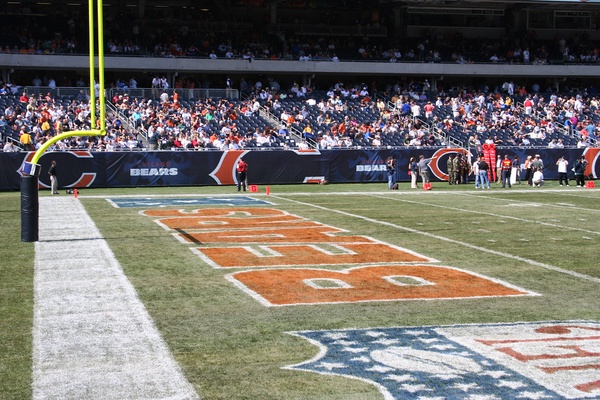(The Center Square) – The Chicago Bears plan to meet with Arlington Heights officials Thursday to discuss their ideas regarding a new stadium complex, but many want to know how much taxpayers will be on the hook for.
The team purchased rights to buy the land at Arlington Park in September 2021.
Artist renderings show a sweeping entertainment and residential district along with a domed stadium. Team officials said it would be one of the largest development projects in state history, creating 48,000 jobs and having a $9.4 billion economic impact to the region, though experts who have evaluated other NFL stadium projects are skeptical of teams’ and local economic development officials’ projections.
The team indicated in an open letter that it is not asking for public money for the stadium itself, but may seek assistance for the surrounding district.
“While the Bears will seek no public funding for direct stadium structure construction, given the broad, long-term public benefits of this project, we look forward to partnering with the various governmental bodies to secure additional funding and assistance needed to support the feasibility of the remainder of the development,” the letter said.
This week at the Arlington Heights village board meeting, Americans for Prosperity deputy state director Brian Costin introduced an ordinance that would ban public financing for the project.
“Over and over again we’ve seen stadium deals and corporate welfare projects turn sour for taxpayers across Illinois,” Costin told the village board.
Costin has used Bridgeview’s SeatGeek Stadium, which opened in 2006, as an example. The Village of Bridgeview issued $135 million in general obligation bonds for the construction of the facility. Bridgeview’s bond rating fell to junk status in 2017 and property taxes have since increased.
By submitting petitions exceeding 1% of the registered voters in Arlington Heights, the village board will be required to consider and vote on the anti-corporate welfare ordinance at the next village board meeting on Sept. 19.
If passed by the village board, the anti-corporate welfare ordinance would “block stadium subsidies for the Chicago Bears, ban corporate welfare incentives and ensure all businesses in Arlington Heights are treated equally before the law.”
Since the Bears’ announcement of purchasing the rights to the land, the city of Chicago has introduced plans to renovate Soldier Field, the teams’ home since 1971. Mayor Lori Lightfoot has remained adamant the Bears should not leave town.
“Those discussions are ongoing,” Lightfoot said. “They have some legal constraints at this moment about what they can do, but we’re going to keep making a case for them. It makes no sense to go anyplace else but stay in the city of Chicago.”
The team’s open letter said they are focused on Arlington Heights.
“While under contract with the seller of Arlington Park, we will not be discussing or exploring any other alternative stadium sites or opportunities, including renovations of Soldier Field,” the letter said.
Originally published by The Center Square. Republished with permission.
More great content from Budget & Tax News
